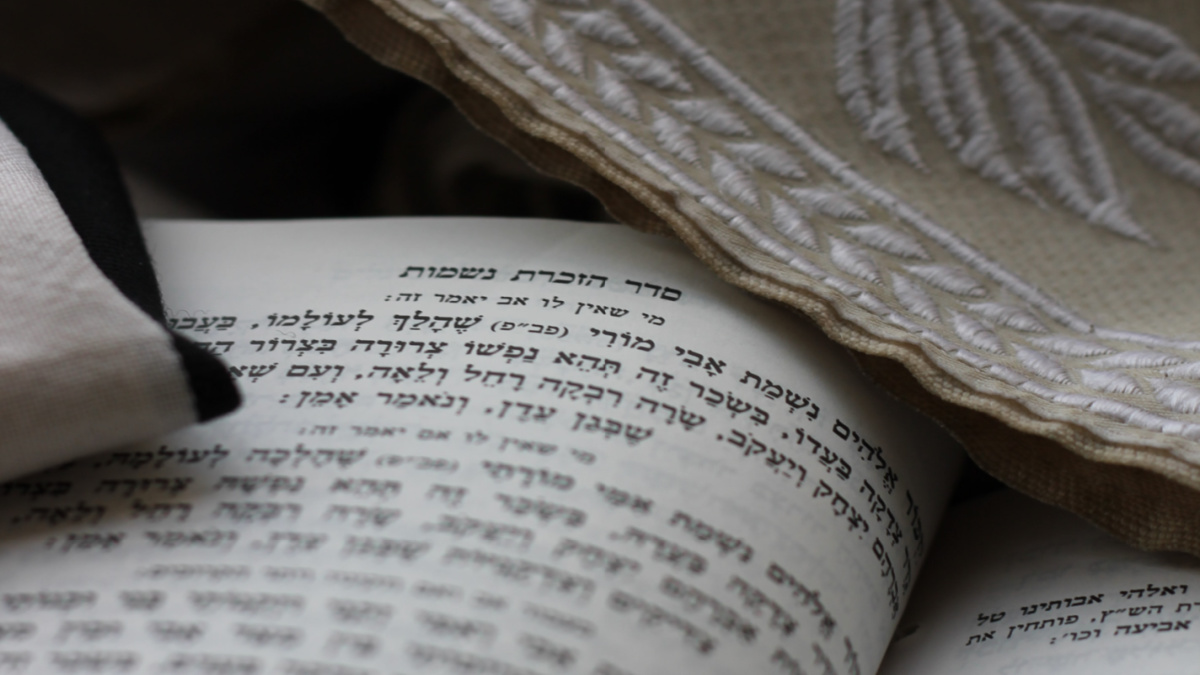Overview:
Yom Kippur is the holiest day of the Jewish calendar. It is also deeply homophobic. Why do so many otherwise progressive religious people continue to participate in such bigotry?
In the early days of October, millions of Jews will observe Yom Kippur. During this most sacred day of the Jewish religion, the faithful will spend hours fasting, praying in synagogue, and spiritually atoning for their wrongdoings against God and people. While many Jews are not regular synagogue attenders, if they do ever go to synagogue, it is most definitely on Yom Kippur.
Because most of my fellow American Jews don’t speak or understand Hebrew, the vast majority have no idea what the actual liturgy consists of on this holiest of days; they don’t know the theological heart of the worship service. Perhaps they assume that it is all about forgiveness, morality, or maybe even love.
Alas, no.
The sacred Torah scripture of the Yom Kippur service—Leviticus 18—is that God considers various versions of incest to be wicked, and homosexuality, specifically, to be a detestable abomination. And just for some Biblical context here, in nearby Leviticus 20, God goes on to command his followers to murder men who have sex with other men.
Jewish scriptures certainly aren’t the only religious canon peppered with such ancient animosity. The most successful religion in the world, Christianity, adopted the Jewish Torah as holy writ and accepts it as divine in origin; to this day, fervent Christians still use these passages in Leviticus to justify homophobic bigotry. And the Christian scriptures that comprise the New Testament not only reproduce the Torah’s anti-gay holy hatred in the writings of St. Paul (Romans 1), but there is also the explicit condoning of slavery (Peter 2; Ephesians 6) as well as the institutionalization of male dominance/female subservience (1 Timothy 2).
Or consider another branch of Christianity: the Church of Jesus Christ of Latter Day Saints. Although they finally started allowing African American men to be full-fledged members in 1978, Mormon scriptures still contain their fair share of divinely-established racism, as well as misogyny and homophobia. Islamic scriptures also include notorious passages easily interpreted as divinely-mandating patriarchy, women’s legal and social inferiority, the physical abuse of wives (Qu’ran 4:34), as well as explicit anti-gay intolerance (Qu’ran 4:16) – heck, the Prophet Muhammed, in authoritative Hadith, echoes Leviticus by commanding the justified murder of gay men.
How do we explain this paradoxical reality? Why do so many Jews, Christians, Mormons, and Muslims believe that their most sacred scriptures come directly from God, while simultaneously ignoring or simply denying the immoral, unjust, and inhumane elements therewithin?
Of course, simply because these religious texts contain passages enshrining problematic inequality—or rather, harrowing malevolence—doesn’t mean that the practitioners of these faiths adhere to them. Far, far from it. Most Jews, Christians, Mormons, and Muslims today are kind, loving, good people who don’t want to murder homosexuals, abhor slavery, value gender equality, detest domestic violence, and seek to live peaceful, charitable lives. For example, the yearly Yom Kippur service notwithstanding, American Jews are actually among the most supportive of gay rights of any religio-ethnic group in the country. And, of course, it goes without saying that—unlike their southern forebears of the 18th and 19th centuries—no Christians today support slavery, despite its extensive Biblical authorization.
How do we explain this paradoxical reality? Why do so many Jews, Christians, Mormons, and Muslims believe that their most sacred scriptures come directly from God, while simultaneously ignoring or simply denying the immoral, unjust, and inhumane elements therewithin?
Simple: their religions have been domesticated, diluted, and modernized. Aside from a minority of fervent fundamentalists out there, most people’s religious faith has been qualitatively and progressively secularized. That is, unlike their more pious predecessors, they no longer conceive of God as the traditional vengeful personage who watches your every move and will condemn you to a fiery hell if you sin, but rather, as a vague, universal, spirit-like force of love; they do not believe in the literal, historical occurrence of every magic miracle supposedly attributed to Moses, Jesus, or Muhammed, but rather, value these prophets mostly for their ethical teachings and symbolic leadership; they don’t really think that prayers actually work like mental emails submitted to a very busy deity who will grant certain requests if they are adequately heartfelt, but rather, simply see prayer as a meaningful, meditative practice that one engages in for comfort or a sense of connection with something bigger than themselves.
This Yom Kippur, most Jews will have no idea that by participating in High Holy Day services, they will be collectively reciting explicitly homophobic verbiage—sacred ideals and God-issued commandments that have justified the murder and oppression of innocent people for millennia, and in some instances, continue to bolster oppression and injustice today. Instead, they will experience a solemn sense of community, moments of healing self-reflection, ritualized penitence, and family bonding. And these are all really good things. But they exist not because of the Torah and its hallowed Biblical precepts, but rather, despite them.
